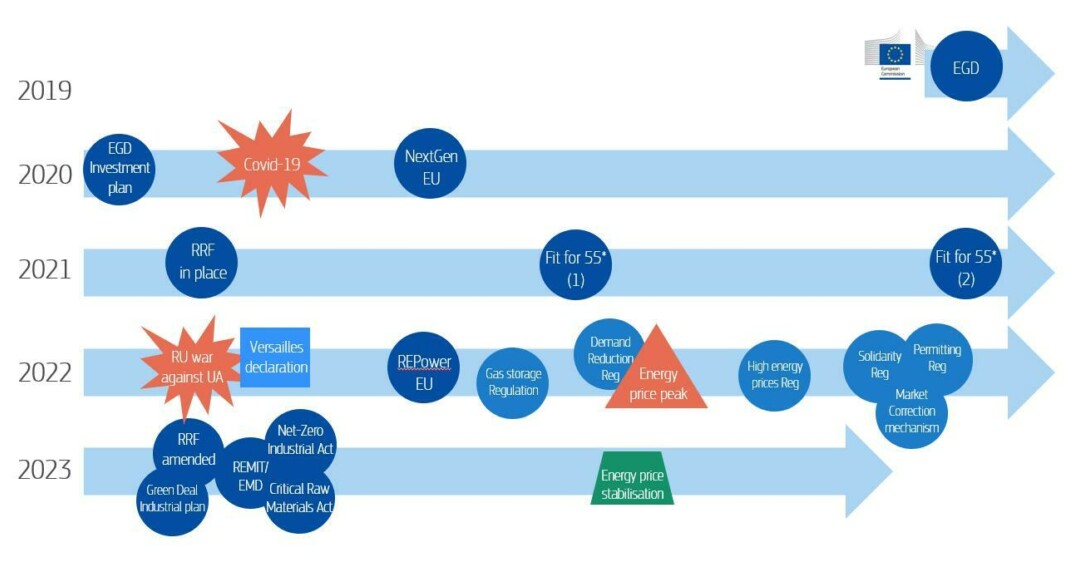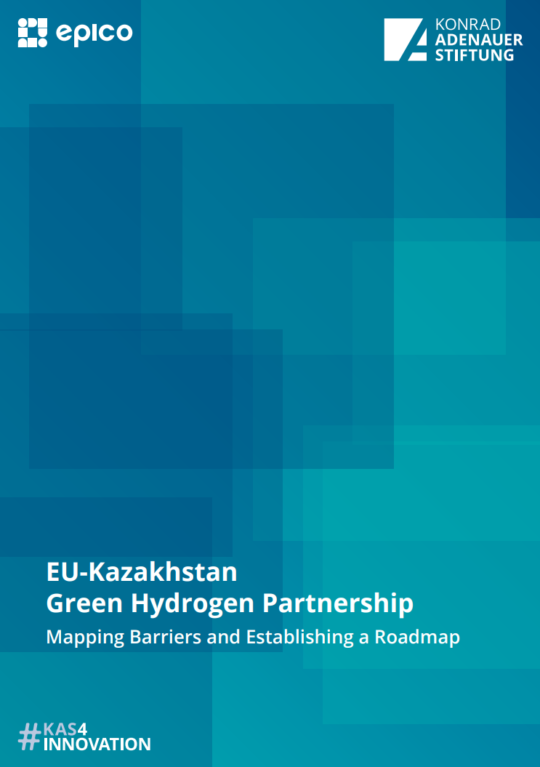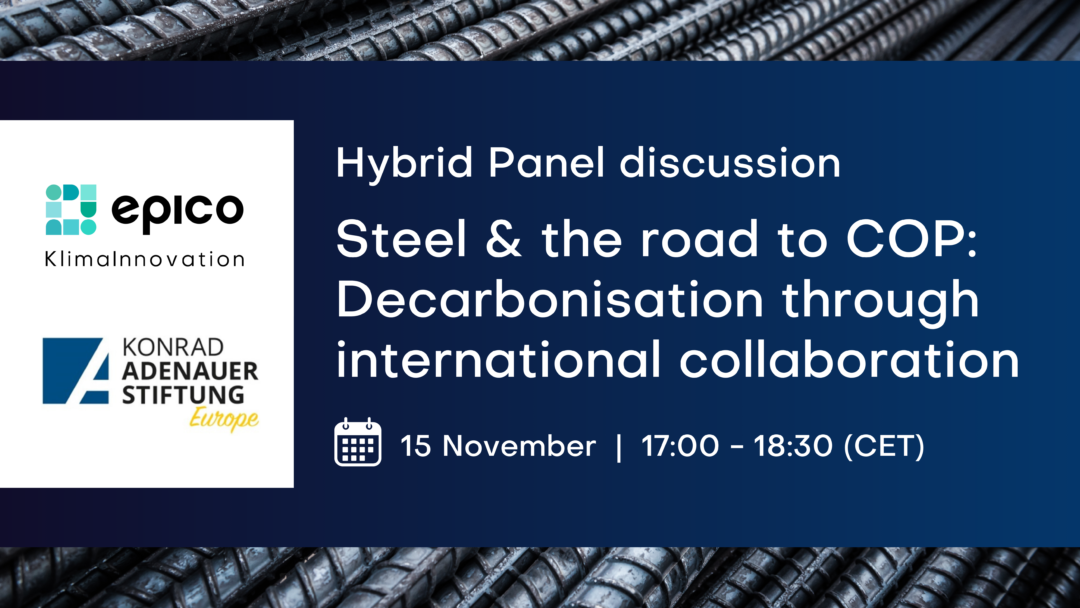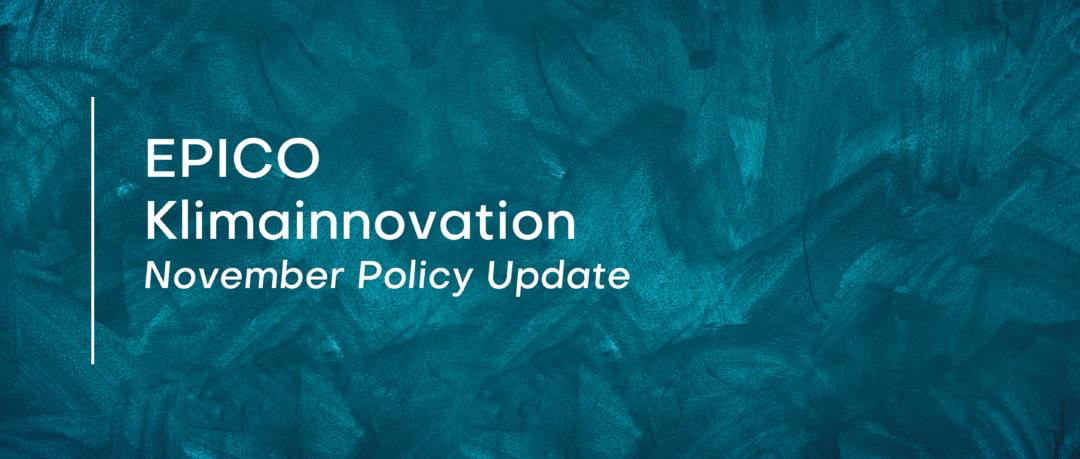
Decarbonizing Europe: Renewables, Industrial Decarbonization and the Path Forward
EPICO KlimaInnovation is a non-profit and independent energy and climate think tank providing a platform, database and network for policy development. In our new monthly newsletter, we dive into the latest developments of EU energy and climate policies and share our upcoming events and new publications.
The state of the Energy Union: calls for action
On 24 October, the European Commission presented the State of the Energy Union 2023 report, highlighting key successes of actions responding to the energy and climate crisis. Although the report concludes that the EU is moving towards more renewables and lowered emissions, with 39% of electricity generated by renewables in 2022 and emissions reduced by 32.5% since the 1990, the pace is alarmingly low and it would need to significantly increase to reach the Union's goals.
On 24 October, the Commission also launched the European Wind Power Action Plan which aims to speed up permitting, increase access to financing, develop skills, create predictability and ensure level playfield – a much welcome move to scale up European renewables capacity.
Creating a level playfield with renewables is both of international and national relevance. In Germany, the Northern regions are pulling industries with the promise of green energy and outcompeting the renewables-poor south. In their latest opinion piece in Table Media , EPICO's CEO Dr. Bernd Weber and Sabine Nallinger from Climate Economy Foundation writes that expansion of renewables, storage and grids, with emphasis on scaling up wind power, are crucial for the region's economic attractiveness:
The future government of the state of Bavaria should focus above all on wind power.
The State of the Energy Union highlights the Commission's ambition for increased renewable hydrogen production and consumption, and diversified energy partnerships. In the light of strategic partnerships, on 17 October the Council held the EU–Kazakhstan Cooperation Council. The ' Global Gateway ' and ' Team Europe ' are Member States ' preferred approaches. On 8 November, EPICO and Konrad-Adenauer-Foundation (KAS) published a policy brief on an EU-Kazakhstan green hydrogen partnership, " EU-Kazakhstan Green Hydrogen Partnership: Mapping Barriers and Establishing a Roadmap ". The policy brief suggests ways for Kazakhstan to play an important role in the EU's future energy security and decarbonization.
Full speed for industrial decarbonization
With the Net-Zero Industry Act (NZIA) passing in the ITRE Committee 25 October, Europe gained momentum to establish an industrial decarbonization revolution. While only renewables were targeted in the original proposal, nuclear power got back into the game, appearing in the list of net-zero technologies eligible for preferential treatment. The NZIA will get its final vote in the plenary session 20-23 November.
With steel being one of the hot topics for the industrial agenda due to its high share of global emissions and importance for the buildout of a net-zero economy, EPICO and KAS will host a panel discussion November 15 on international collaboration and steel, sign up here .
The Council got out of the EMD deadlock
October came with the end to this autumn's big policy drama: The revision of the EU Electricity Market Design (EMD). The core of the conflict has been on benefits from mandatory contracts for difference (CfDs) also for existing nuclear power plants, which would increase French industries' competitiveness towards the German's. Ahead of the Council's meeting, EPICO's CEO Dr Bernd Weber and Senior Associate Advisor Klaus-Dieter Borchardt wrote in Euractiv on how the EMD could be designed to increase renewable energy production, incentivize energy efficiency, and lower energy prices for European industries' competitiveness:
Europe cannot afford a 'two-speed' Union, with one group of Member States pouring money into industry through subsidies and hampering the transition to renewable energy sources.
The Franco-German deadlock ended after the Member States reached an agreement 17 October. Member States committed to the uptake of power purchase agreements (PPAs) and mandatory two-way CfDs for public funding in long-term contracts of new renewable and nuclear power generation plants. The state revenues from CfDs should be used to reduce electricity costs for end consumers.
CCS sailed back up on the agenda
Carbon Capture and Storage (CCS) got a Danish-Dutch pact when Denmark and the Netherlands signed a Memorandum of Understanding ( MoU ) to collaborate on CCS and CO2 transport. This partnership aims to advance innovative solutions to reduce greenhouse gas emissions. The ENVI Committee's proposed Union certification framework for carbon removals (CFCR) aims to "accelerate deployment, build trust with stakeholders and industry and help counter greenwashing by ensuring that all operators apply the same rules", and it includes both permanent carbon removals, such as CCS, and land-based sequestration, such as carbon farming. The CFCR is scheduled for the plenary session November 20-23.
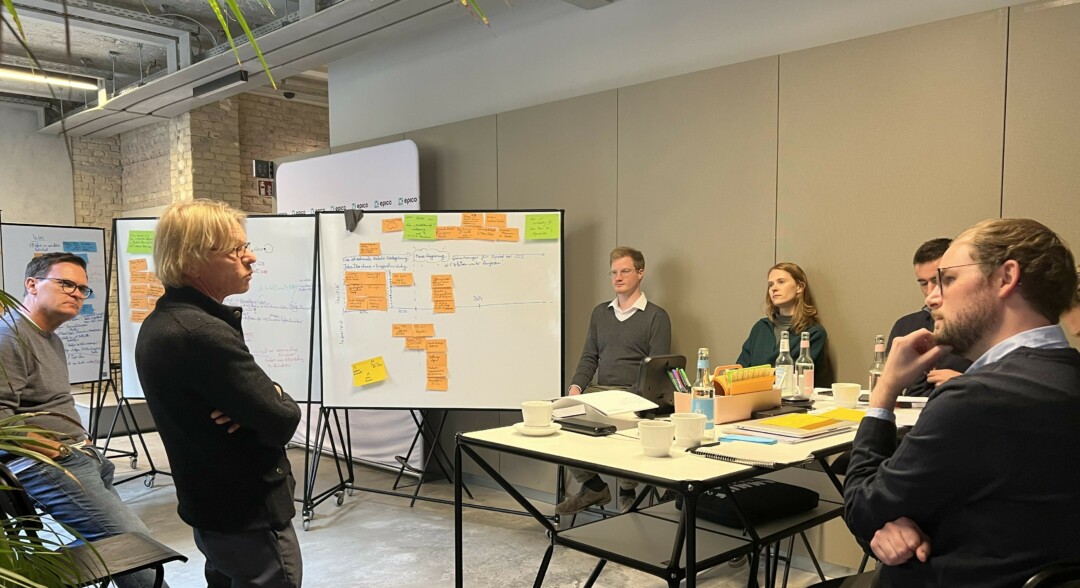 Image: EPICO KlimaInnovation
Image: EPICO KlimaInnovation
On 17-18 October, EPICO and KAS, brough together experts on CCS from business, politics, and civil society in the third sprint of our design-thinking workshop series "Policy Accelerator for Climate Innovation 2023" to outline the potential role forward for CCS in German emissions reduction . The discussions strongly emphasized the need for governmental action and clear guidelines to involve the public in the process and promote social acceptance of CCS. A close cooperation between science and society was seen as essential to achieve Germany's ambitious climate goals. EPICO's policy specialist on energy markets, Maximilian Lauer summarizes the workshop:
The outlook for the results of the Policy Accelerator, particularly in terms of the acceptance of CCS, is promising. The role of government will be central in ensuring the necessary support from society and industry.
The output from all three Policy Accelerators will be presented and discussed with a panel of specialists at the Demo Day 30 November , will we see you there?

